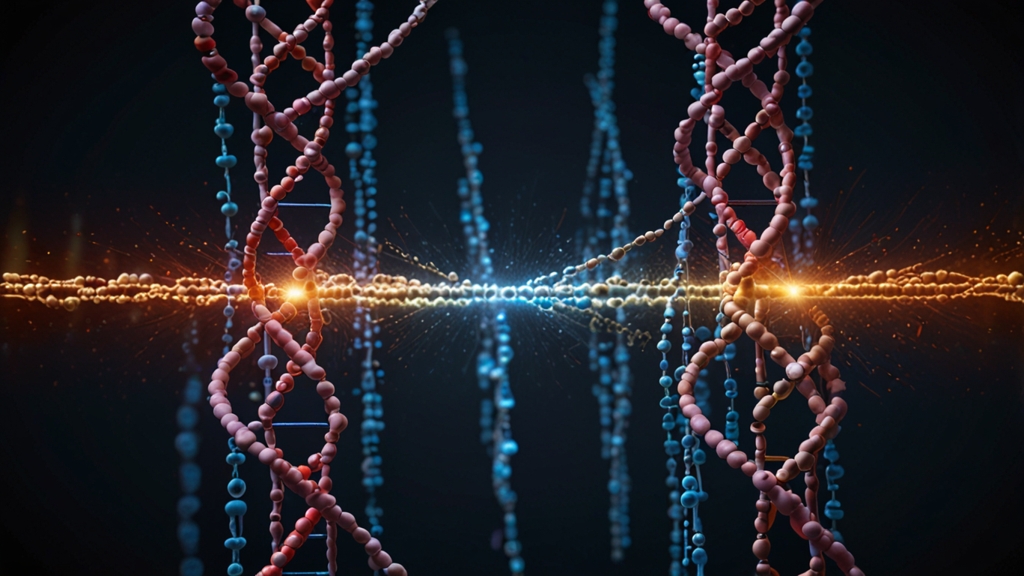Unmasking the Mysteries of the Human Genome
The human genome, the complete set of genetic information within our cells, is nothing short of a miracle of nature. It is a vast, complex code that dictates every aspect of human development and functioning. Despite significant advances in genetic research, the human genome continues to hold many mysteries. Understanding these secrets can help us decipher the profound intricacies of life, advance medical science, and unlock new possibilities for future generations.
The Structure of the Human Genome
The human genome is composed of DNA, or deoxyribonucleic acid, which is organized into 23 pairs of chromosomes found in the nucleus of each cell. Each chromosome contains numerous genes, regions of DNA that act as instructions to make proteins, the workhorses of the body. The genome's 3 billion base pairs, or chemical building blocks, are the blueprint for building and maintaining a human being.
Mapping the Genome: A Milestone in Science
The Human Genome Project, launched in 1990 and completed in 2003, successfully mapped the entire human genome. This monumental achievement provided an unprecedented resource for scientists, allowing them to explore the genetic basis of various diseases and traits. The project's completion marked the beginning of a new era in genetic research, enabling more precise diagnostic tools and personalized treatments.
The Human Genome Project was a landmark achievement in science, akin to landing on the moon. It transformed our understanding of genetics and opened up countless avenues for research, diagnosis, and therapy.
The Ongoing Challenge: Decoding Function
While the Human Genome Project mapped all the genes, understanding their specific functions remains an ongoing challenge. A significant portion of our DNA, often referred to as "junk DNA," does not code for proteins but may have regulatory roles or other functions that are not yet completely understood. Research efforts such as the Encyclopedia of DNA Elements (ENCODE) project aim to elucidate these functions and the complex regulatory networks governing gene expression.
Genomics and Personalized Medicine
The information gleaned from genomic research has profound implications for medicine. It allows for the development of personalized or precision medicine, where treatments and preventive strategies can be tailored to an individual's genetic makeup. This approach is particularly promising for diseases like cancer, where specific genetic mutations drive the growth of tumors.
Personalized medicine is poised to revolutionize healthcare. By tailoring treatments to the genetic profile of individual patients, we can achieve more effective and targeted interventions, minimizing side effects and improving outcomes.
Ethical and Social Considerations
As with any powerful technology, the advancements in genomic research come with ethical and social considerations. Issues such as genetic privacy, discrimination based on genetic information, and the ethical implications of genetic modification need careful deliberation. Maintaining a balance between scientific progress and ethical responsibility is crucial to ensuring that the benefits of genomic research are realized equitably.
The Future of Genomic Research
Looking ahead, the future of genomic research holds exciting possibilities. Advances in technology, such as CRISPR-Cas9 gene editing, offer the potential to correct genetic defects and combat genetic diseases. Additionally, as our understanding of the genome deepens, we may uncover new insights into human evolution, development, and the intricate mechanisms that sustain life.
The journey of unraveling the human genome is far from over. With each new discovery, we inch closer to understanding the full complexity of human biology and unlocking new potentials for health and disease management.
The human genome remains one of the most fascinating and complex frontiers in science. As we continue to unlock its mysteries, we gain not only insights into the fundamental aspects of life but also powerful tools to enhance human health and well-being. The quest to fully understand the human genome is a testament to human curiosity and ingenuity, promising a future where genetic knowledge serves as a cornerstone of medical and scientific advancement.





